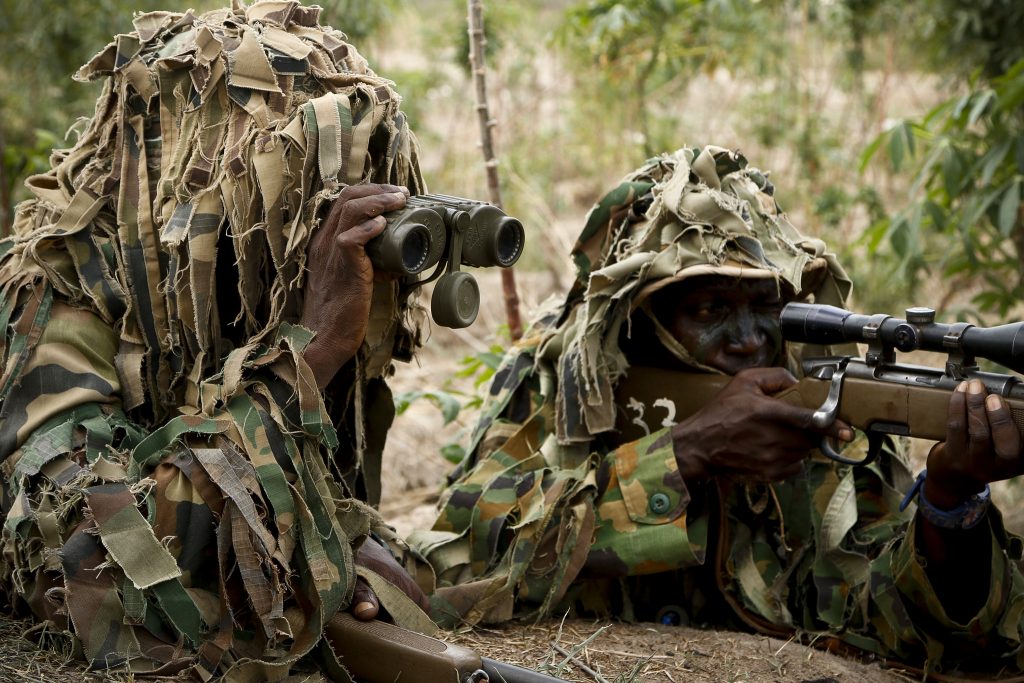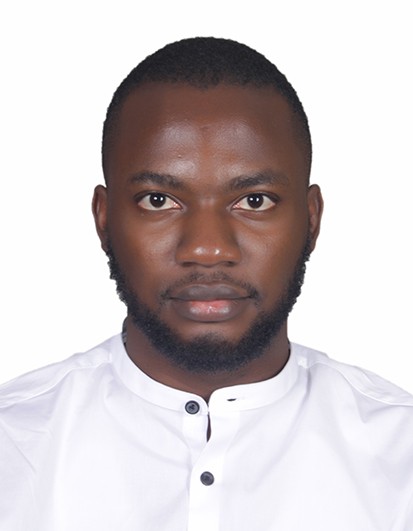Nigeria: Election in Times of Terrorism
On 23 February, Nigerians will vote in presidential elections. Incumbent Muhammadu Buhari faces challenges similar to those of his predecessor Goodluck Jonathan, who was voted out of office in 2015 because the people no longer believed he could end the war against Boko Haram. In another striking similarity to 2015, the electoral commission postponed elections by a week.
Around this time four years ago, Nigeria’s Independent National Electoral Commission (INEC) announced that the presidential and federal parliamentary elections would be postponed. The official reason given was that unfavorable reports had been received from the country’s security agencies.
The feeler among many journalists and certain camps of independent watchers of Nigerians was that the shift was actually down to the fears of the incumbent about losing the elections. Boko Haram was also losing the war against the combined firepower of South African mercenaries and the multinational joint task force comprising troops from the Lake Chad region – Nigeria, Chad, Cameroon and Niger.
In 2019, just a few hours to the commencement of voting on February 16, INEC postponed elections again by a week, citing logistical issues.
In the build-up to the 2019 elections this month, the question of insecurity in the region has come up again and with due reason. The town of Rann in the country’s northeast offers an atomization of the current chaos and hopelessness that pervades a lot of the region, especially the state of Borno, birthplace of Boko Haram. It has been the target of at least four attacks in the last three years, the most recent being the January 28 attack that left 60 people dead and, as multiple sources tell me, at least two humanitarian workers abducted.
A lack of reforms and its consequences
Traditionally, the Northeast is a stronghold for the All Progressives’ Congress, party of president Muhammadu Buhari, and he is expected to still win the region in the coming polls. However, his closest challenger in Atiku Abubakar of the People’s Democratic Party hails from Adamawa state in the region. He thus stands a chance of pulling the carpet from under the incumbent, especially in his home state and in Taraba where residents want revenge at the polls against the federal government’s nonchalance towards tackling the resurgent pastoralist crises that killed many of their kinsmen over the last few years.
In 2015, people of the northeast voted massively against the Goodluck Jonathan administration and his party, the People’s Democratic Party. Their reason was simple – to register their grievances with the handling of the efforts in crushing the war. It seems likely that this could happen again, – but on what scale? Given that Buhari’s cult-like personality has barely faded, the margins will most likely be slimmer – also because the people of the northeast are unhappy with the man they overwhelmingly voted for, barely four years ago. Under Buhari’s watch, the country experienced its worst recession in over three decades. The 2018 report of the Bertelsmann Stiftung’s Transformation Index (BTI) states that, despite a principle committment to democracy and market economy, President Buhari and his government „neither had the capability and capacity nor the political will to establish, enforce, or execute consistent priorities with regards to the required socioeconomic and political reforms“.
A significant percentage of the poor people getting poorer live in the North and have watched members of Buhari’s cabinet and inner circle in large-scale corruption without prosecution. Babachir Lawal, secretary to the federal government, was indicted for diversion of 270 million Nara (around 660.000 Euro) meant for Internally Displaced People (IDP) who had to flee from Boko Haram. After pressure from the press and parliament, he was finally fired in 2017 and charged to court just this January.
Also, this year officially makes it a decade since the beginning of an intense conflict that has left a trail of destruction in its wake and thousands of people dead. The United Nations High Commission for Refugees (UNHCR) estimates the number of displaced people in the Lake Chad Basin Area as 7.5 million, with 320,000 fleeing their homes in the last four months alone.
Fading hope
In December 2015, barely six months after his inauguration, Buhari told the BBC that Nigeria had “technically won the war“ against Boko Haram and a few members of his cabinet have reiterated that since then. But the situation on ground differs – the insurgents carried out 135 terror attacks in 2017 alone, with 900 documented deaths. Abubakar Shekau, like the cat with nine lives, has come out every single time to counter the army’s claims that he has been killed.
The group split in two in 2016. One is Abubakar Shekau’s Jamaat Ahlis Sunna liDawatti wal Jihad. The other, the Islamic State West Africa – led by the son of founder Mohammed Yusuf whose death in 2009 sparked the insurgency – has sworn allegiance to the Islamic State. Both factions are putting on quite a violent show of being the best at what they do.
The repeated attacks on Rann have been the handiwork of JANS; ISWAP masterminded the abduction of 110 schoolgirls from the town of Dapchi almost exactly a year ago and still hold one of them, Leah Sharibu. Both sides are increasingly seizing territory and as the Wall Street Journal recently reported, ISWAP is using sophisticated propaganda and weaponry like armour-plated vehicle-borne bombs, sapping troops’ morale.
To divert limited manpower from such a crucial two-pronged fight against insurgents to keep certain areas safe enough for polling is a recipe for disaster, especially given the number of military casualties at the battlefront. Nigeria simply does not have enough number of troops and policemen to ensure safety of people who have to travel significant distances to vote at their polling units. So many of the eligible voters will be absent for this reason. Hopefully, IDPs made to go back home in order to give a semblance of return to peace and boost optics for the government, don’t become abduction targets for either faction of get caught in accidental crossfire between either side and the military.
“The military footprint is still too light when compared to the number of towns which need to be secured”, anonymous security and military intelligence expert, Beegeagles, told me in an interview. “That avails the insurgents with operating space such that they are able to pose a threat to the electoral process.”
„Boko Haram has defeated our government“
Given the number of major security incidents witnessed in December and January, there are bound to be people who will opt to stay away altogether, knowing the insurgents’ penchant for deploying suicide bombers to attack public gatherings.
The alternative would be to try and get IDPs to vote within the camps. However, each of these camps across the region are home to anywhere between 5,000-15,000 people each; the logistics needed to pull this through would be daunting to say the least and nightmarish at the most. The attacks at Rann and other villages close to the borders have led many to bolt into Cameroon and Chad on a continuous basis. For instance, more than 4,500 people from the Baga area registered at the Dar es Salaam refugee camp in Chad and 35,000 from Rann moved into Cameroon.
Furthermore, many of the displaced are primarily concerned with the abysmal conditions within the camp including the lack of adequate shelter against elements of nature as well as the diminishing food rations. There is even a full-on crisis in some camps. Exercising their electoral mandate is probably the last thing on the minds of many. In such an environment, vote-buying could thrive and as little as 500 Nara (1,22 Euro) could tempt many into handing over their voting cards to party agents – or make people vote for food, a practice that critics have termed ‘stomach infrastructure’.
“It is Boko Haram that has technically defeated our government”, popular newspaper The Cable screamed last March. Based on the evidence at hand on the eve of what is perhaps the most important election in sub-Saharan Africa, one is tempted to agree.
This article has been updated on February 19, 2019, in order to include recent developments surrounding the postponement of the 2019 elections.

